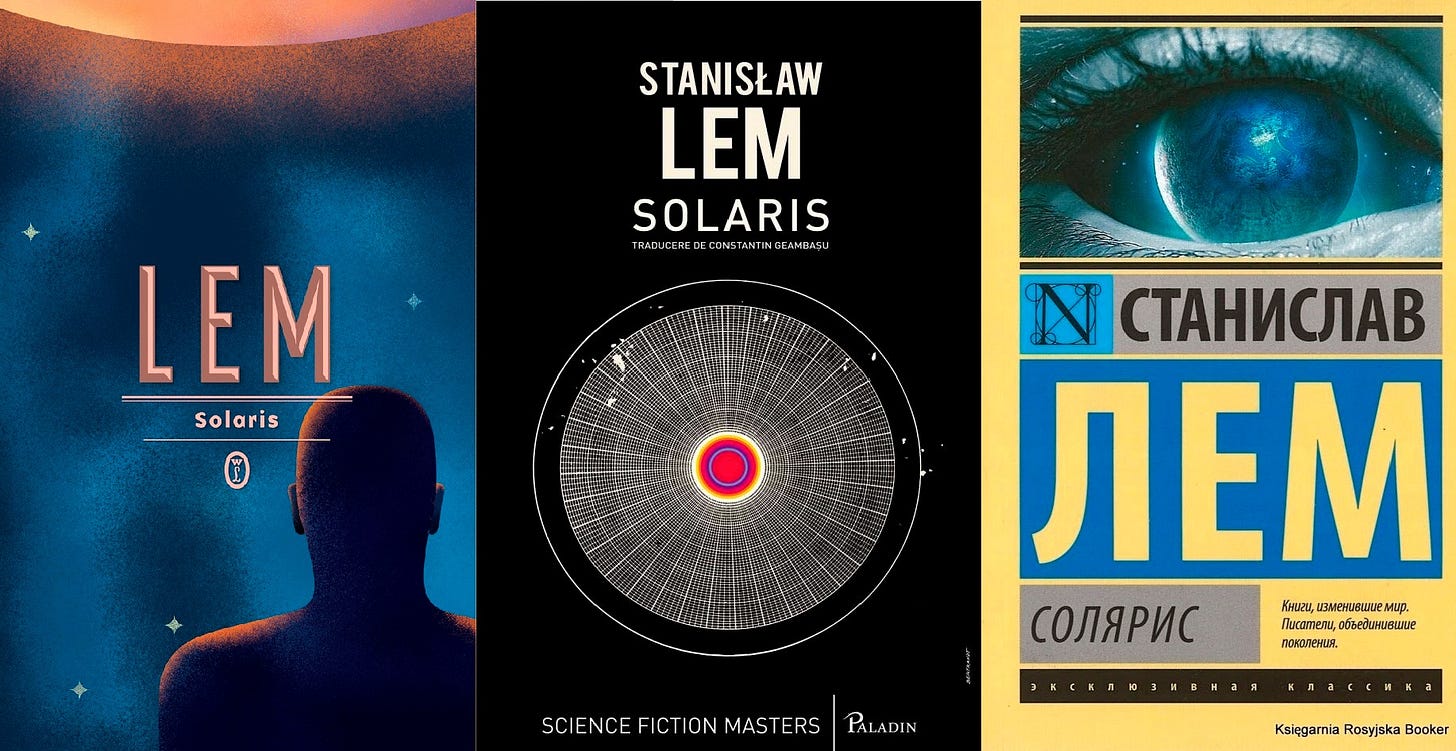Stanisław Lem's 'Solaris: A Literary Odyssey through the Cosmos and Consciousness
Exploring the Depths of Science Fiction, Philosophy, and the Human Soul
Hello and welcome to "Vintage Cafe," a reader-supported newsletter crafted for curious minds. Here, you'll discover reviews and recommendations spanning books, music, travel journals, writing tips, art, and the artistry of coffee, all designed to enhance your experience. To stay updated on new posts and to support my work, consider becoming either a free or paid subscriber. Opting for a paid subscription is the most impactful way to sustain and champion Vintage Cafe. Take advantage of our December special with a 20% yearly discount opportunity.
The sequence of encountering Steven Soderbergh's haunting film adaptation of Stanislaw Lem's mesmerizing book "Solaris" or the original work that inspired it eludes my memory. However, from the very first encounter, the stories within the stories, the moods, the writing, the pace, and above all, the profound ideas explored within the narrative captivated my attention. These experiences opened the doors to Lem's brilliant oeuvre and ushered in a new dimension of science fiction writing.
In Stanisław Lem's novel "Solaris," a captivating tale is woven, delving deep into the recesses of the human psyche and exploring the enigmatic mysteries of encountering an alien intelligence. Notably, the book served as the basis for two films: Soderbergh's rendition, and a version by Soviet film director Andrei Tarkovsky, which earned accolades at the 1972 Cannes Festival (Grand Prix Spécial du Jury). Tarkovsky's choice to adapt this work was driven by a desire to infuse emotional depth into the science fiction genre, which had long been dominated by space invaders, monsters, and epic battles.
The narrative unfolds on a space station orbiting the enigmatic planet "Solaris," where Kris Kelvin, a psychologist, embarks on a mission to investigate the perplexing and unsettling occurrences among the crew. The station itself is a realm of chaos, and hallucinations permeate the environment. However, the ultimate enigma lies within the ocean that envelops "Solaris" a vast entity that seemingly possesses its own consciousness. From the moment Kelvin steps onto the station, an ominous tension engulfs the narrative, reminiscent of a held breath, anticipating the emergence of the inexplicable. The minds of the crew appear fractured, and Kelvin's experiences grow increasingly enigmatic, culminating in the appearance of his deceased wife, Rheya, as a living, breathing doppelgänger. These uncanny phenomena are rooted in the sentient ocean of "Solaris," a mysterious being that defies comprehension.
Keep reading with a 7-day free trial
Subscribe to Vintage Cafe to keep reading this post and get 7 days of free access to the full post archives.






